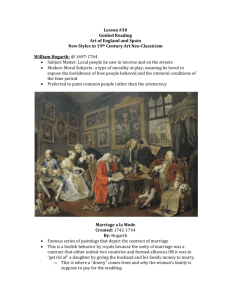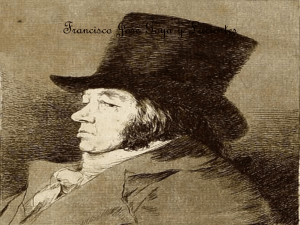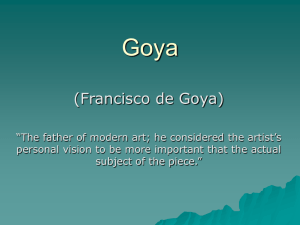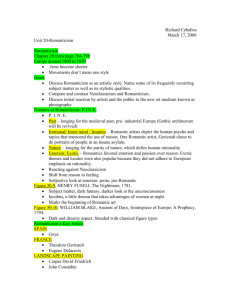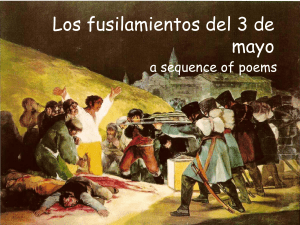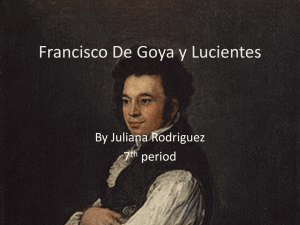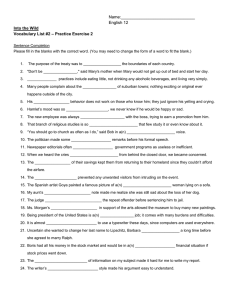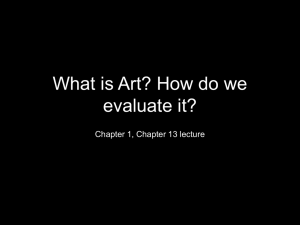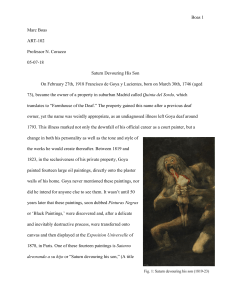ROMANTICISM A Movement An Aesthetic Style An Attitude or Spirit
advertisement
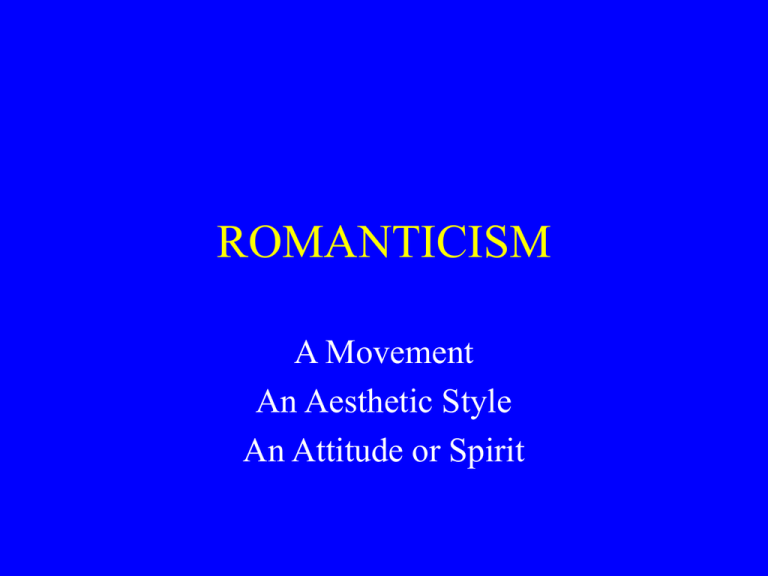
ROMANTICISM A Movement An Aesthetic Style An Attitude or Spirit As a Movement • Revolt against convention • Revolt against authority • Search for freedom in personal, political, and artistic life • Reacted against Enlightenment order • Reacted against industrialism The Witches’ Sabbath by Francisco Goya The Witches' Sabbath was one of the series of the fourteen Black Paintings, made by Goya on the walls of the so-called "The Deaf Man's Villa", between 1820 and 1824. It was located on the longest wall of the dining room of the ground floor together with Leocadia, Two Old Men, Saturn, Judith and Holofernes and St. Isidore's Day. rd 3 of May by Francisco Goya Characteristics of Style • • • • • • • Love of nature (sublime) Rejection of organized religion (God is in nature) Free expression of imagination Liberation of the emotions Spontaneous outpouring of feeling Taste for the exotic, ecstatic, and fantastic Glorification of the individual (intuition and senses) • • • • • • • Sentimentality: excess of feeling Nostalgia for the past Melancholy—lots of suicides Longing (shown in their art) Nationalistic—die for what you believe Alienated from society Despair • The world is too much Turner’s Rain, Steam and Speed • • • • • • • • • with us; late and soon Getting and spending, we lay waste our powers: Little we see in nature that is ours; We have given our hearts away, a sordid boon! This sea that bares her bosom to the moon, The winds that will be howling at all hours,And are up-gathered now like sleeping flowers, For this, for everything, we are out of tune; It moves us not.—Great God! I’d rather be a pagan suckled in a creed outworn; So might I, standing on this pleasant lea, Have glimpses that would make me less forlorn; Have sight of Proteus rising from the sea; or hear old Triton blow his wreathed horn. Heroes • Pursued fiercely individualistic paths to creativity • Alienated from society • Self indulgence (also called subjectivity) • Frustration and despair • Adventures into danger • Infatuation with the sublime Taste for the exotic, the ecstatic, and the fantastic Glorified the individual self by intuition Reliance upon the senses Emotions were as important as reason Valued sentimentality, nostalgia, melancholy, and longing
